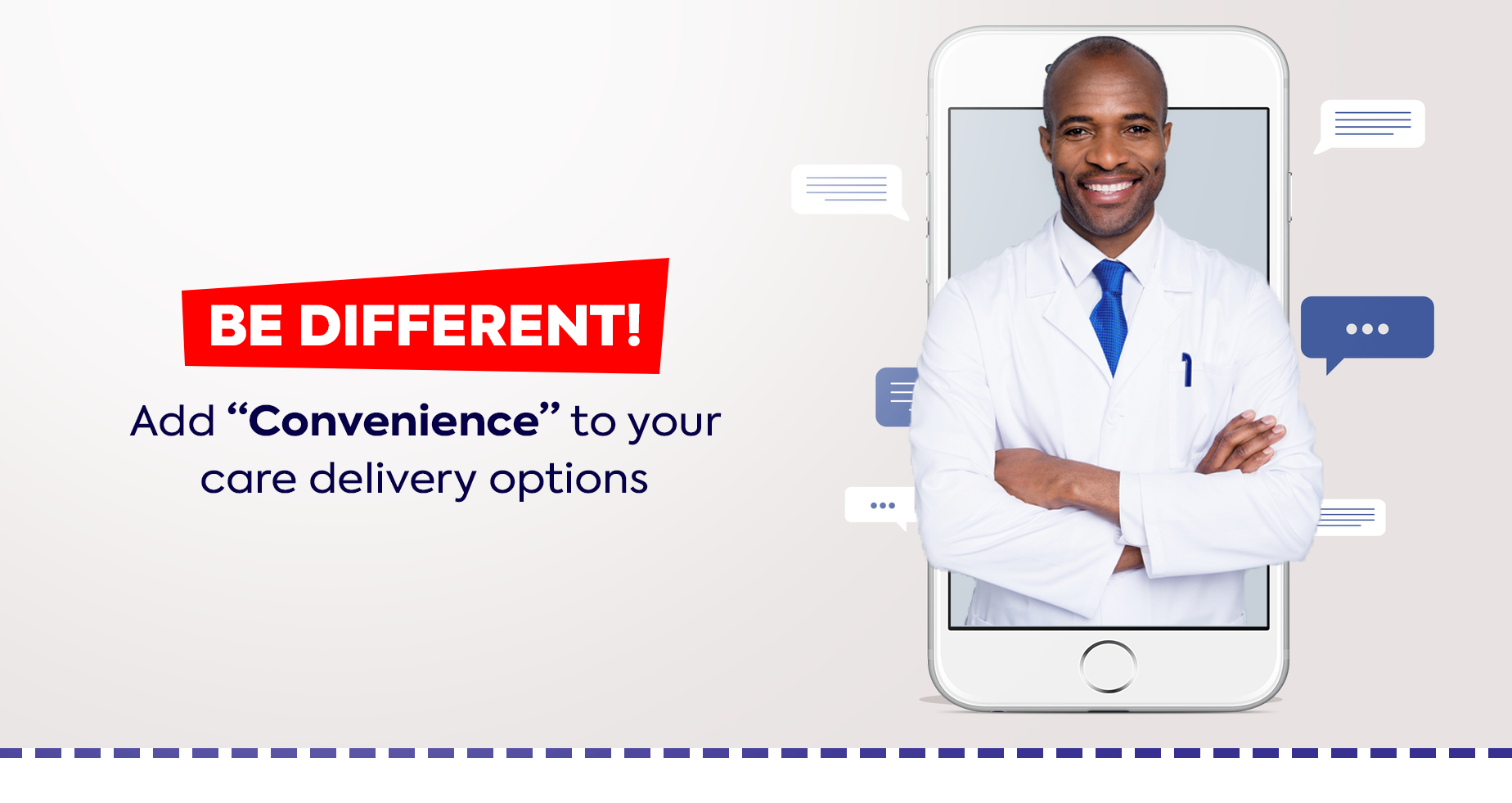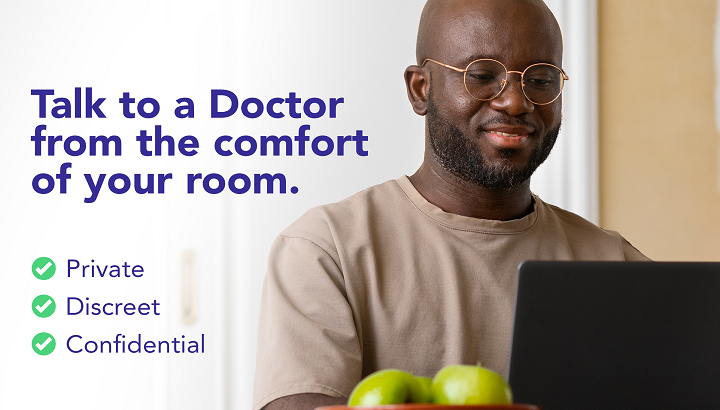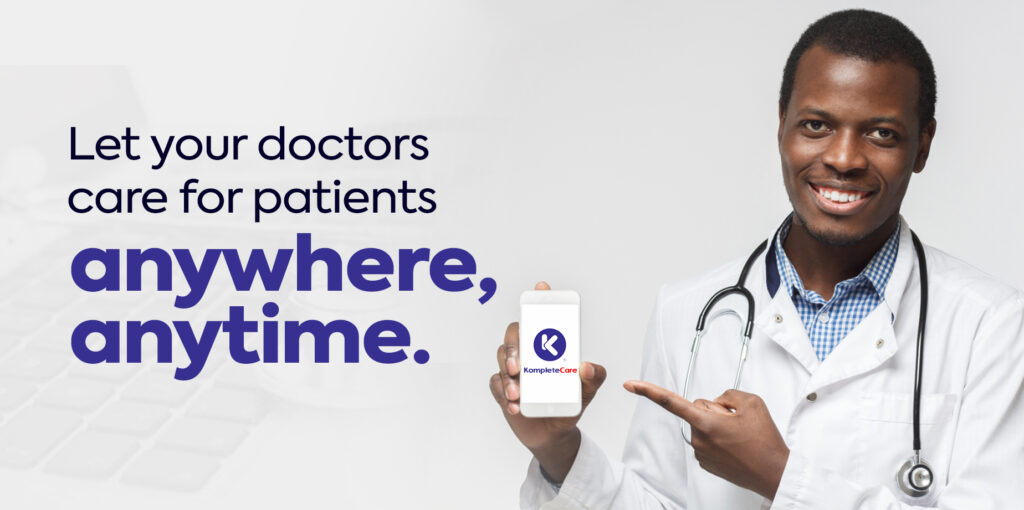
![]() Chisom MaduechesiTelehealthFebruary 7, 2024
Chisom MaduechesiTelehealthFebruary 7, 2024
Telemedicine apps in Nigeria? How can I know the right one for my health needs?
It was a hot afternoon, when Ogechi’s five-year-old son David, woke up suddenly from his afternoon nap and started coughing,
David had been sleeping well for ten minutes before he started coughing. As he coughed you could see the veins on his neck, it looked as though her only son was fighting for his life,
She took off his clothes and patted him on the back, but he didn’t stop
At this point, Ogechi was in tears,
While she was rushing out of the house to the hospital, she called Abike, her friend who was a Medical Doctor, for help.
Abike helped her calm down and gave her some instructions, and in a few minutes, David stopped coughing and went back to sleep.
This is a typical example of the use of Telemedicine.
In this article, we explore everything you need to know about telemedicine apps, especially when choosing the right one for your health needs.
The World Health Organization (WHO) refers to telemedicine as “healing from a distance”.
Therefore, telemedicine refers to the exchange of medical information from a health professional to a patient through the use of online communication mediums such as video calls and emails.
Telemedicine can also be referred to as the practice of caring for a patient online when the medical professional and patient are not physically present with each other.

Telemedicine can be described as a newborn child of healthcare, and it is here to stay.
As the years go by, telemedicine is finding new channels to be relevant in medical care. In this era, clinics, hospitals, patients, and independent medical professionals are quickly making use of this new practice to improve their results.
The benefits of telemedicine apps are in two ways: for patients and for medical professionals.
Now, let’s discuss the advantages of telemedicine to patients.
CONVENIENCE: Telemedicine allows you to receive medical care and attention from the comfort of your bedroom, even if you are wearing pajamas.
This is the most important benefit of telemedicine as it also reduces the stress of going to the hospital.
With telemedicine, you can book and attend your doctor’s appointments while doing your chores or whatever you like doing that makes you happy.
REDUCED SPREAD OF INFECTION: People come to the hospital or clinic with different illnesses and diseases, caused by different bacteria and viruses, and some of these disease carriers can be transmitted by contact. The use of telemedicine reduces the risk of getting infected,
So while you receive medical care anywhere else outside the hospital, you are safe from those disease variants.
LOW COSTS
Telemedicine ensures that you do not have to spend money on transportation to see your doctor.
You can always reach your doctor either by video call or voice call
IMPROVED ACCESS TO HEALTHCARE
With telemedicine, you can ask your doctor questions about your health, your doctor can also perform regular checks, remind you of your prescriptions, and provide wellness, diet, and exercise tips to hasten your recovery period.
Now that you understand some of the benefits of telemedicine, follow our guide below to learn how to choose the right telemedicine app for your health needs.
INCREASED ACCESS TO SPECIALISTS
In many locations, some specialized doctors or health professionals are either not available or low in number. But with telemedicine, you can speak with any specialist doctor you need.

Now that we know what the benefits of telemedicine are, you can enjoy these benefits by choosing the right telemedicine app. Thankfully, all these can be found on the KOMPLETECARE APP.
1. The Doctor’s Profile
This is a page where all the information about a particular healthcare professional is stored.
Aside from the general information, such as profile photo, name, and educational qualifications, the doctor’s profile may also include :
It could be more, but this profile helps you know more about the doctor you are to work with.
2. Appointment Management and Calendar Integration
The patient scheduling tool is another valuable tool for telemedicine apps. With this function, doctors can schedule patients for virtual visits, telehealth exams, follow-up sessions, and periodic appointments.
The online appointment system should allow access from different offices and feature cross-schedule integration with other medical offices or clinics (where a patient gets healthcare services). Additionally, the patient should also be allowed to self-schedule their visits.
3. E-Prescription
If you are looking for a telemedicine app, make sure it has an e-prescription.
This feature allows doctors to write, edit, manage, review, and send drug prescriptions without meeting with the patient in person. E-prescribing ensures a seamless administrative process, making it more secure and efficient for healthcare facilities.
The e-prescription system integrates with the EHR (Electronic health record) system of a hospital, and once a doctor compiles a new medication order, sends it to the pharmacy of the patient’s choice or the one with a doorstep delivery option.
Aside from that, the e-prescription system can have a list of pharmacies to which medication orders were issued.
4. Video calls
Many features are important, but the telemedicine app must have an option for video calls.
This is the main essence of telemedicine, being able to talk to your doctor without being physically present with him/her.
5. Symptom Checker
If your telemedicine app has this feature, then that’s a plus for you.
A symptom checker can help patients track symptoms and stay aware of their health condition at any given moment by asking them questions about how they feel and reporting to the health professional.

6. Payment System
Every telemedicine app must have this feature unless it’s for charity, which isn’t.
But if it has a seamless payment process like in-app payments, then you have found a treasure.
Make sure it has popular payment options like credit cards, Payoneer, PayPal, Apple Pay, etc.
Recently, some telemedicine apps have added cryptocurrency as a payment option which is applaudable.
7. Patient Review
A telemedicine app should also have a feature that allows the patient to evaluate their health professional based on how satisfied they are with the service provided.
Feedback from patients is an important part of
improvement and professional advancement. It will also help new patients to find the specialist doctor best suited to their preferences.
8. Patient History and Electronic Medical Records (EMR)
EMR is your CRM (client relationship management) system but for healthcare. It is used to keep the information regarding a patient’s visits, diagnosis, and other medical data all in one place. The goal of EMR is to help doctors get rid of the paperwork they have to deal with daily.
Aside from that, the EMR also helps to regulate security issues, such as unauthorized access to patient records.
9. Push notifications
These notifications can be annoying, but in healthcare, they are very valuable.
If you find them annoying, for the sake of your health, use them.
Alerts and notifications can remind you of upcoming visits and medication procedures.
They can also be used to inform you about test results and necessary precautions or preventative measures for your medical condition.
10. Social proof
What do other users have to say about the telemedicine app you want to choose? It is very easy to know what people are already saying before you try it out.

Q: Who uses Telemedicine the most?
A: Full-time employed individuals, particularly females aged between 18 and 44, and those holding a bachelor’s degree, show a higher likelihood of using telemedicine services. However, there is a positive connection between income levels and the adoption of telehealth, especially within households ranging from 3 to 10 people.
Q: Is Kompletecare a telemedicine platform?
A: Yes, Not only does Zoom enable virtual care, but it also helps providers support patients through one-on-one and group sessions, which patients can access from the comfort of their homes. However, Zoom
Q: What are the types of communication in Telemedicine?
A: Telemedicine uses many methods of communication which include text messages, phone calls, email, and video conference calls to obtain access to care or communicate with healthcare providers.
The introduction of telemedicine has given the health industry the power to make patients happier, cut down on missed appointments, and boost clinic earnings. Patients can also make accessing healthcare smoother by using various telemedicine options. If someone is dealing with mental health issues or chronic conditions, they should visit the clinic directly instead of connecting with a doctor online.
Have you tried telemedicine?
Share your experience with us in the comment section.
NutritionFebruary 7, 2024
MedicationFebruary 23, 2024
healthcareFebruary 27, 2025
healthcareAugust 20, 2025








